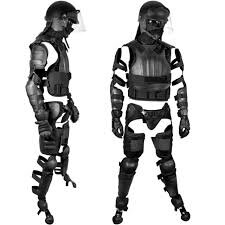Randall
J. Randall Murphy
I'm with you in principle but it's not quite that simple. I suspect what you really mean is that objects described in UFO reports that have been classed as unknown are probably UFOs ( alien craft ), the word "alien" meaning not necessarily from space, but from someplace other than known human civilization, and the word "probably" meaning that although all other known reasonable explanations have been ruled out, there is still a margin of error that precludes certainty, at least with all the cases we know about.For me, UFO=possibly aliens, basically. That's what most of us think anyway upon hearing that word, and I'm tired of seeing all those attempts to avoid saying so.
That is different than having a well substantiated definition for what the word means to begin with. I completely disagreed with Greg Bishop's position on a recent ATP episode that we shouldn't begin with a definition and then try to find evidence for that. It's not that I don't appreciate the intent of what he was saying, which was to reduce confirmation bias, but having a well defined working theory has been the standard procedure for the scientific method ever since it was established. We see something, we begin asking questions, we formulate hypotheses, and so on. It provides focus and eliminates a lot of unnecessary noise.
This is not to say I think we can always apply the scientific method as well as we would like in ufology ( I don't ). I think we need something more adaptable, which is why I advocate critical thinking. I'm simply pointing out that having well defined definitions for the subject matter in a particular field of inquiry is an academically accepted way of dealing with it. Nobody knew if black holes were real, and for that matter nobody has ever actually seen one. But exactly what they are was defined in no uncertain terms before the search began. SETI works on a similar principle. So returning to the point:
Even if we haven't got sufficient evidence to prove the existence of alien craft to everyone, that doesn't mean we shouldn't be trying to find that specific kind of evidence. If we run into evidence for other things along the way, that's fine, we can pass it along to the meteorologists, or the cryptozoologists, or whatever the case may be. In the meantime, we know what ufology is about. It's about UFOs ( alien craft ). That definition is based on the origin, history, and usage of the word, and then distilled down to it's essential meaning. You can view that via the link in my signature line. It's not simply my preferred off-the-top of my head opinion, or a simple dictionary definition. It's a well formulated working definition for the field.
Last edited:

 .
.

